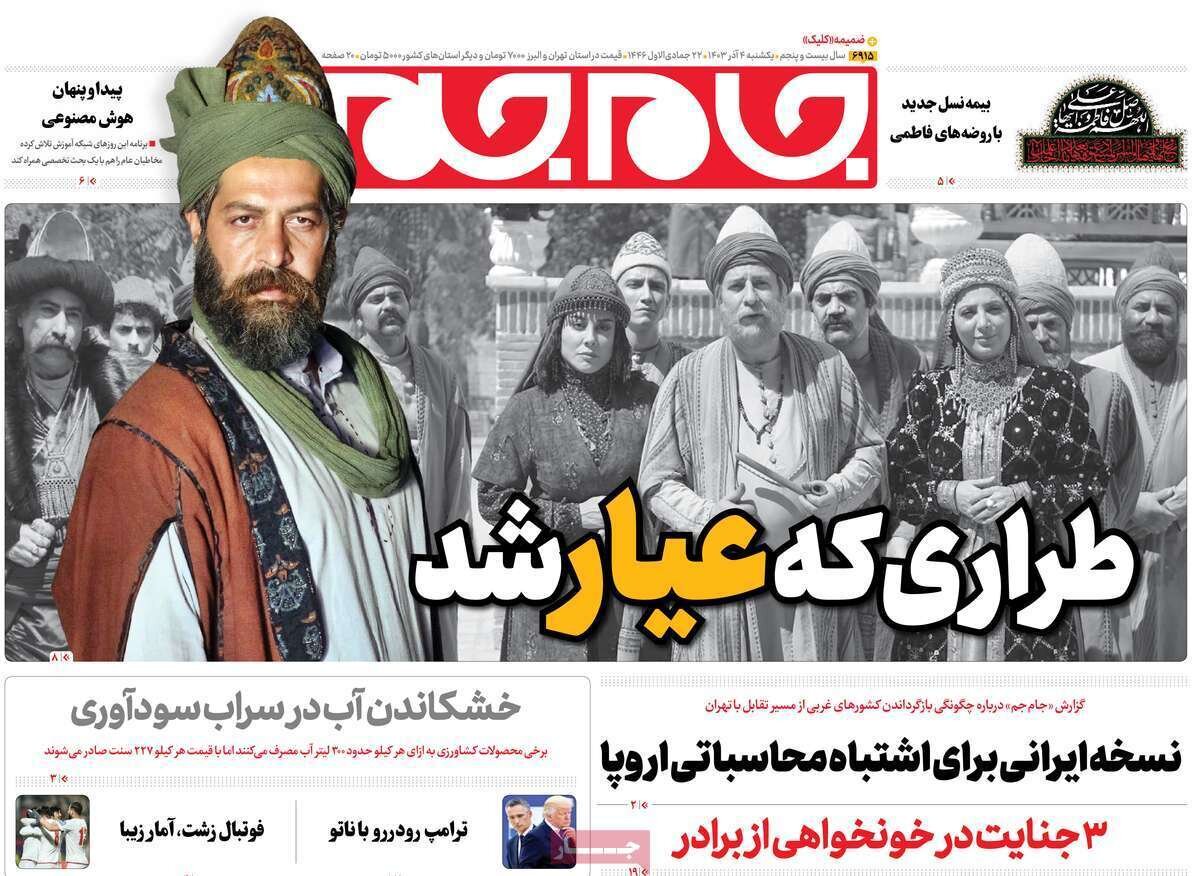Europeans play to the Zionists dance
Europeans play to the Zionists’ dance
TEHRAN - In an analysis, Jam-e-Jam analyzed the IAEA Board of Governors’ move in endorsing an anti-Iran resolution drafted by the European trio of Britain, Germany and France, collectively known as E3 or the European troika.

It wrote: This resolution was approved while its main content was based on the claims of the Zionist regime, and the three European countries, England, France, and Germany, have been insisting on this bogus claim for a long time. Issuing an anti-Iran resolution, backed by the Europeans, indicates that the decision was made elsewhere, and naturally, Iran's positive steps could not influence the decision. The Europeans were so persistent in their anti-Iran action that they did not even wait for the results of the Agency's Director General's visit, and in a countermeasure, they presented a resolution against Iran at the Board of Governors. Undoubtedly, this politicized, unrealistic, and destructive approach poisoned the positive atmosphere created by Iran. This action, at a time when Iran and the IAEA were on the path of constructive interaction, proved once again that the three European and American governments were not at all honest in their claim to maintain the credibility of the IAEA, and that Iran’s nuclear program is just an excuse and a pretext to advance their illegitimate goals.
Sobh-e-No: Delusional and extravagant Europe
The news of Grossi's trip to Iran and his visits to the Fordo and Natanz nuclear facilities hit the headlines in the world’s media. This trip could provide space for more constructive interactions. Iran has always tried to create a suitable environment for cooperation with the International Atomic Energy Agency. However, the behavior of some Western countries, especially the three western European ones, is still a serious obstacle to putting Iran and IAEA interactions in a legal and technical framework. These countries have complicated the process of cooperation by politically exploiting the Iran nuclear issue. The possibility of issuing a resolution against Iran can increase tensions instead of solving problems. According to Mikhail Ulyanov, Russia's representative in Vienna, some Western countries have abandoned diplomacy and escalated tensions. Considering the disloyalty of America and Europe towards the JCPOA, the Islamic Republic of Iran should appear as a claimant in this case and use all its capacities to defend its nuclear rights. If the Western countries show no rationality and continue with their hostile policies, the consequences will be on their shoulders.
Hamshahri: Two imaginable scenarios in the West-Iran ties
Hamshahri discussed the relations between Iran and the West in an interview with Amir Ali Abolfath, an expert on international issues. He said: It seems that Iran and the West are heading for a collision course. The first scenario is "collapse", in a way that the Western side would activate the trigger mechanism in October 2025 and return the sanctions on Iran. The return of sanctions will increase the economic pressure on Iran. But the Westerners also lose from the activation of the trigger mechanism, because Iran may move towards changing its nuclear doctrine. But the second scenario is a "new understanding". In such a situation, the risk of the return of the Iran sanctions will be canceled, and changing Iran's nuclear doctrine will not pose any danger to the Western parties. Changing Iran's military-nuclear doctrine will create many problems for the West in the Middle East because in that case, we will witness an arms race in the region, an issue considered an undesirable option for America and Europeans.
Iran: Israel’s security and intelligence failures
In a commentary the Iran newspaper wrote before October 7, 2023, the Zionist regime was proud of its small, cohesive, and impenetrable society. However, the events that followed the Al-Aqsa Storm put an end to the myth of Israel's security-intelligence power and invincibility. Now every resident of the occupied territories is considered a potential spy against Israel. Some Zionists, according to the regime's claim, provide security and military information to Iran in exchange for money. The intelligence battle between Iran and Israel is one of the most complex in the world, and publishing the news of the arrest of spies in the occupied territories is the Zionist regime's attempt to cover up its intelligence failures in the face of Iran. The approval of a law to establish a new intelligence organization in the occupied territories is a step in the direction of reforming Israel's intelligence structure, especially as the Zionist regime has been engaged in a full-scale war with Lebanon and Gaza and intelligence confrontation with Iran.
source: tehrantimes.com